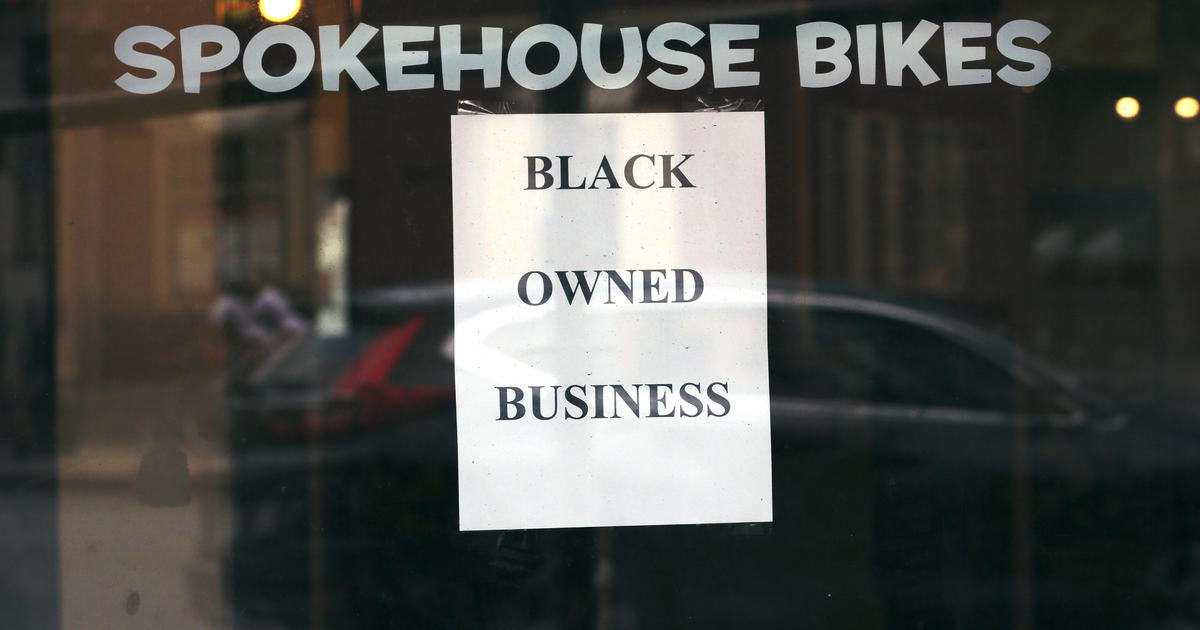A small-business poll paints a grim outlook for Black-owned companies, suggesting that more than half may be forced to close by April 2021 without federal relief.
The poll asked 600 entrepreneurs from all backgrounds how long they believed they could remain open in the current coronavirus-slammed economy without government aid. Only 40% of Black respondents said they could last more than six months, compared with 46% of Asian respondents, 48% of Latinx and 55% of white respondents.
The demise of small businesses would devastate Black communities according to Main Street Alliance and Color of Change, the two groups that conducted the poll, released Friday. Recovery would take decades, said Color of Change.
“The devastating consequences of these closures will ripple throughout Black communities and last for generations,” Color of Change President Rashad Robinson said in a statement. “Our federal government can no longer wait to bring immediate, accessible relief to Black small businesses.”
Congress must pass the Health and Economic Recovery Omnibus Emergency Solutions Act, or HEROES Act, said Amanda Ballantyne, Main Street Alliance’s executive director. The legislation should include subsidies to small businesses, eviction protection and expanded unemployment insurance, she said.
Chefs work to grow diversity in the industry
05:54
Ballantyne said Black businesses in particular are in danger of failing because many were denied funding designed to keep small companies afloat during the pandemic, including the Paycheck Protection Program and the Economic Injury Disaster Loan, or EIDL.
Flaws in PPP
Flaws in the Paycheck Protection Program hindered small businesses owned by minorities and by women from securing federal coronavirus relief, according to lending experts and interviews with numerous owners.
Of the Black-owned small businesses lucky enough to get federal relief, many received less money than they applied for, said Ballantyne. One example is that of Miami business owner Kimberly Douglas, whose one-year-old company produces a film festival highlighting movies directed by women.
Douglas said that before the pandemic, she had 10 employees. After the coronavirus hit and Florida began its statewide shutdown, Douglas had to spend $15,000 to convert this year’s film festival, typically held outdoors, to an online-only format, she said.
“The PPP I didn’t even bother with,” Douglas said. “We were too young of a company. We hadn’t had those financial relationships, had payroll and all of that, that was requested to receive that.”
Douglas applied for an EIDL, and received it — but only a partial amount. As a result, Douglas said, she had to lay off six of her employees, with four remaining as volunteers.
Delayed explanations for rejections
Many Black small-business owners were denied a loan and didn’t receive an immediate explanation why, Ballantyne said. Terrika Walker, who owns a residential care facility in Louisiana, said she didn’t learn why she was rejected until six weeks after she applied for a PPP loan.
Walker said the bank that accepted her application in May later fired the employee who was looking over her material. No one reviewed her application until mid-June. By then, the PPP funds were depleted, Walker said. The rejection meant all five employees at Attentive Residency had to be laid off, she said.
Walker criticized how major corporations, like Auto Nation and Shake Shack, received relief from the Coronavirus Aid, Relief, and Economic Security Act, or CARES Act, while many small businesses were shut out.
“It was a package to help out small businesses which we did not receive at all,” she said.
Not receiving pandemic aid played a strong role in the demise of thousands of Black-owned businesses this year. There were more than 1 million Black-owned businesses in the U.S. at the beginning of February, according to research from the University of California at Santa Cruz, which drew from Census survey estimates. By mid-April, 440,000 black business owners shuttered for good — a 41% plunge.
